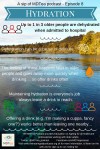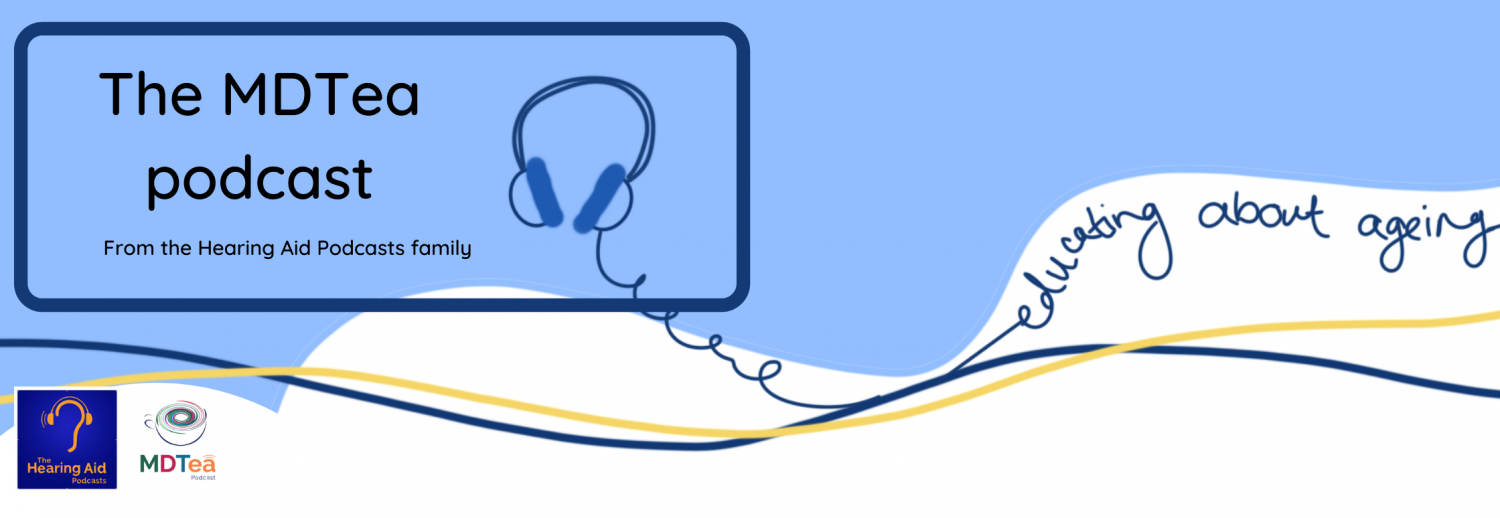Episode 1.8 Hydration
MDTea Episode 8: Hydration
Posted 26th April
Presented by: Jo Preston (Consultant Geriatrician at St George’s Hospital) and Iain Wilkinson (Consultant Geriatrician at East Surrey Hospital).
Core Faculty Contributors: Frances Scott – AHSN and Claire Watson – Practice Development Nurse.
In this episodes we explore the challenging topic of hydration in older adults, including the phsyiological changes that make them more prone to dehydration than their younger counterparts, and what we can do to prevent and treat it.
Click here for the show notes for this episode.
Here is a Sip of MDTea episode 8.

CPD log
Click here to log your CPD online and receive a copy by email.
Episode 8 Show Notes
Hydration
___
Presented by: Dr Jo Preston & Dr Iain Wilkinson
Core Faculty:
Frances Scott – KSS Academic Health Science Network
Clare Watson – Practice Development nurse – BSUH
Broadcast Date: 26th April 2016
Learning Outcomes
Knowledge:
- To be able to recall the signs and symptoms of dehydration
- To understand the steps involved from physiology to action in dehydration / thirst
Skills:
- To be aware able to assess someone for dehydration
- To be able to look for and treat dehydration
Attitudes:
- To proactively think about dehydration in any older adult, particularly in care home or hospital settings
Definitions:
Dictionary Definition:
A condition that results when the body loses more water than it takes in. This imbalance disrupts the usual levels of salts and sugars present in the blood, which can interfere with the way the body functions.
Practical Definition:
Really its any time that the body has les fluid within it than it needs. This can due to an inadequate intake of fluid – but also can result from an excess loss of fluid (or a mix of the two).
Key Points from Discussion
We felt it was really quite striking how often patients are dehydrated. There have been to studies that we know of that have looked at this:
- Patients in hospital are dehydrated on admission (37% in HOOP study, 62% still dehydrated at 48 hours) Meaning dehydration is both poorly recognised and managed – they used serum osmolality as measurement (see below).
- The same was also true for residents in long term care as found in the DRIE study – dehydration was at 20% – again using serum osmolality measurement.
Which Frail Older People Are Dehydrated? The UK DRIE Study
(Dehydration Recognition in our Elders). J Gerontol A Biol Sci Med Sci. 2015 Nov 9
So why are these people dehydration?
Its either not enough fluid intake – or too much out – it’s as simple as that- but there are a lot of confounders to this.
- Causes of poor oral intake include: difficulty swallowing, vomiting, nausea, poor appetite,
- Increased losses can occur due to : Diarrhoea, diuretics, blood loss, increased sweating in fever / poor thermoregulation (so don’t vasoconstrict when should) or sepsis.
- Also… oral intake may temporarily drop while they are unwell, for example with an infection or a delirium for any reason (see Series 1 Ep 2).
Unfortunately there are no really reliable tests you can do at the bedside to find out definitively if someone is dehydrated. Blood (serum) osmolality is the ‘gold standard’ but does require a blood test.
A Cochrane Review looking at this showed: only 3 tests showed any individual ability to diagnose dehydration (compared to raised serum osmolality) note none were consistently useful though!
- Fatigue
- Missing drinks between meals
- BIA resistance: estimates total body water
Others which were found to have limited diagnostic accuracy were
- Drinks intake
- Urine osmolality
- Axillary moisture (Iain talks about this in the show)
Really we feel the tests are there to support a diagnosis – but really prevention is better than cure and we all should try to do what we can to prevent dehydration occurring.
Thirst
Thirst in older people is different in that the triggering of the thrist receptors is harder – so your ‘thirst threshold sensation’ is at a higher serum osmolality level – so normally, as we become dehydrated, the blood becomes more concentrated (increased osmolality), and the body senses this at a certain level and tells your brain to drink more. In older adults, the level at which this process is triggered is higher, so they can become more dehydrated before they recognise that they are
But… then when an older person starts to drink the thirst sensation is switched off after a smaller intake of fluid than in younger adults.
Key point – build a quality care structure that includes hydration at its core – rather than introducing numerous further assessment tools /tick boxes.
People are more likely to drink when offered drinks from a trolley service than when left in front of them.
Coupled to this drinks left for patients (in a acute hospital) are often no reachable to them.
A study of surgical inpatients showed that 42% people did not have their water jug within reach, and 31% found the action of pouring a glass of water from that jug was either difficult, very difficult or impossible
Prevention of dehydration in hospital inpatients
There are also a number of really good interventions that have not as yet been published upon – such as jugs with lids that don’t fall off, the Hydr8te intervention (a number of interventions including 8 drinks rounds per day) and the Reliance on Carer to drink (ROC) tool which assesses risk of dehydration in hospitalised patients are care home residents.
Curriculum Mapping:
This episode covers the following areas (n.b not all areas are covered in detail in this single episode):
| Curriculum | Area |
| NHS Knowledge Skills Framework | Suitable to support staff at the following levels:
|
| Foundation Curriculum 2012 | 1.3 Continuity of care
1.4 Team working 2.1 Patient as centre of care 8.2 Responds to acute abnormal physiology 10.1 Long-term conditions 10.3 Nutrition |
| Foundation Curriculum 2016 | 2. Patient centred care
4. Self-directed learning 9. Recognition of acute illness 10. The frail patient 10. Nutrition |
| Core Medical Training | Common competencies:
Symptom based competencies:
System specific competencies:
|
| GPVTS program | Section 2.03 The GP in the Wider Professional Environment
Section 3.05 – Managing older adults
|
| ANP (Draws from KSF) | 7.17 Chronic malnutrition
7.27 Nutritional status including chronic and acute dehydration |




